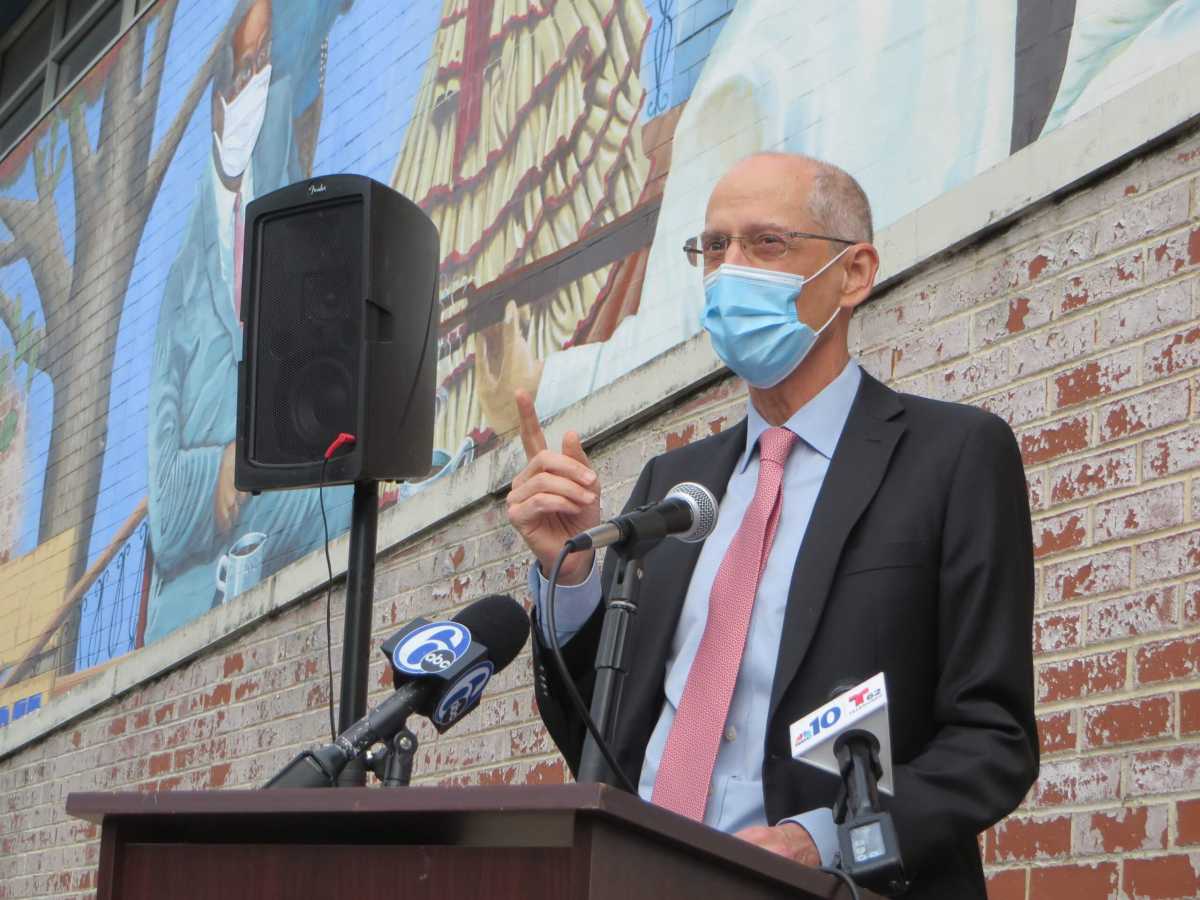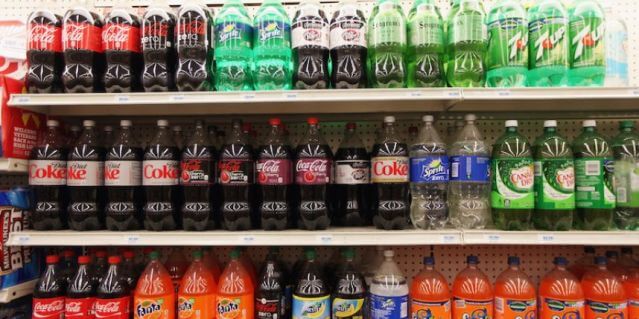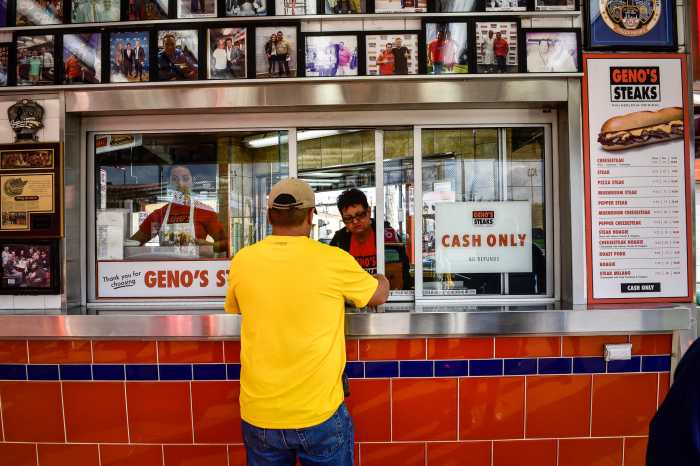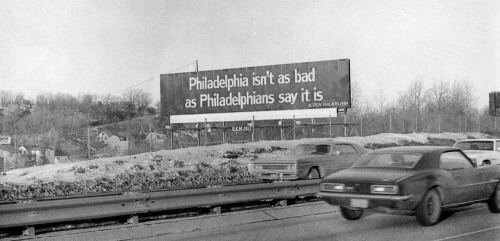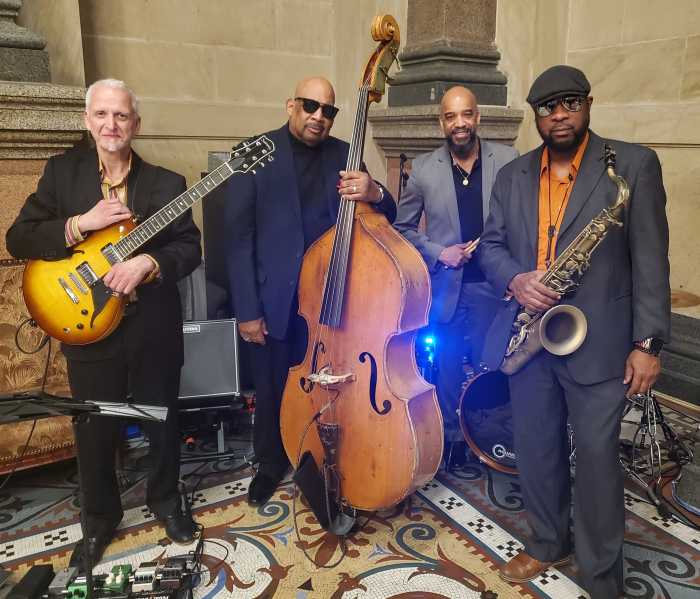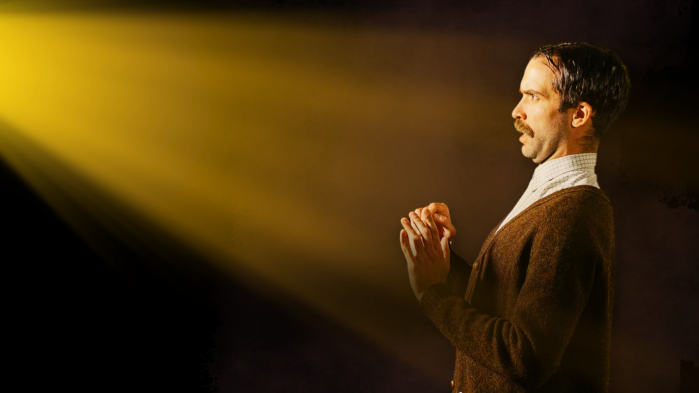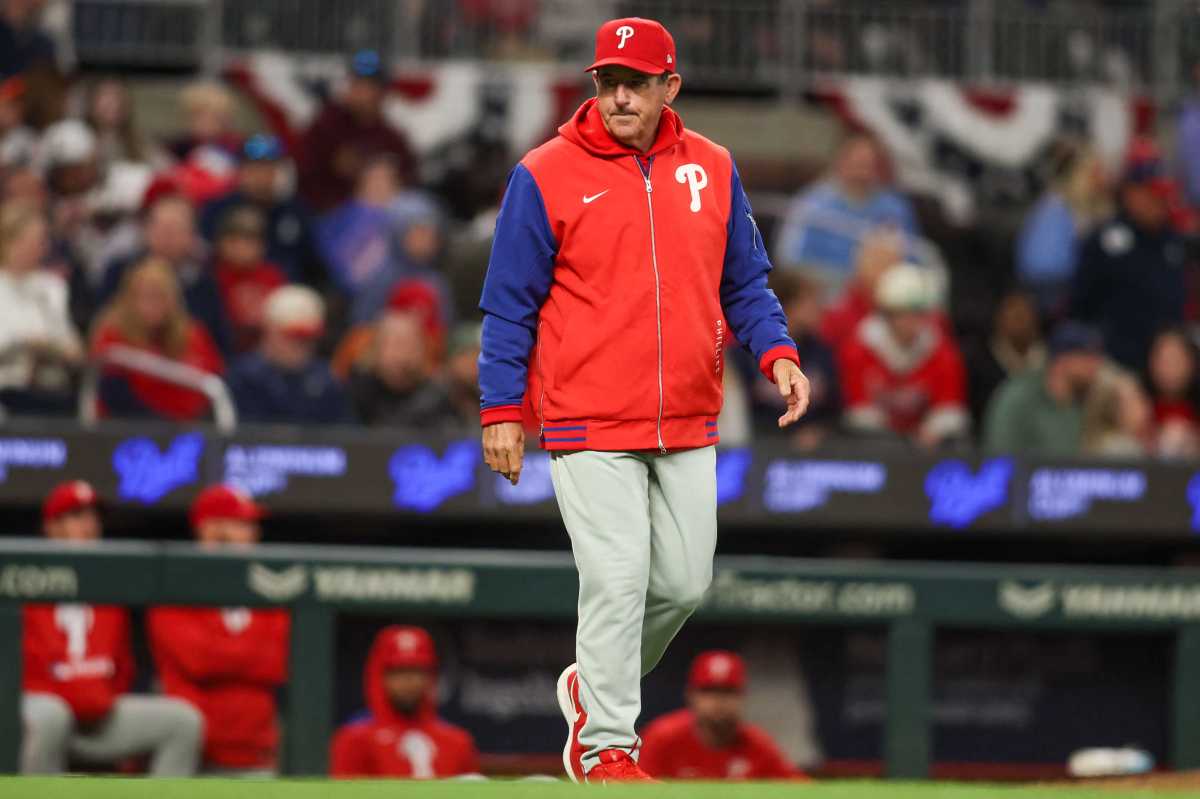Wide-ranging coronavirus restrictions will go into effect Friday in Philadelphia, closing gyms, museums, high schools and stopping indoor dining at restaurants through the end of the year, among other measures.
City leaders, including Mayor Jim Kenney, said that the regulations are an attempt to avert a drastic scenario in which Philadelphia records thousands of cases a day and local hospitals run out of beds.
“We do not take any of this lightly and believe me, more than anything in the world, I wish none of this was necessary,” Kenney said. “But there’s no doubt these changes are necessary.”
The decision, announced Monday, represents the city’s most aggressive effort to control the virus since authorities issued a stay-at-home order and shuttered all nonessential businesses in March. Those protocols have been gradually lifted since the spring.
“A vaccine will be available in the coming months,” Health Commissioner Thomas Farley told reporters during an afternoon briefing. “We simply need to tide ourselves over until then.”
Other businesses that will be required to close their doors include bowling alleys, concert halls and theaters, including movie theaters.
High schools that have been offering in-person classes will have to shift to a 100% virtual curriculum, and colleges, except for students receiving medical instruction, must do the same. Libraries will only be permitted to operate with curbside pick-up and drop-off.
The plan released Monday will be in effect through at least Jan. 1, officials said.
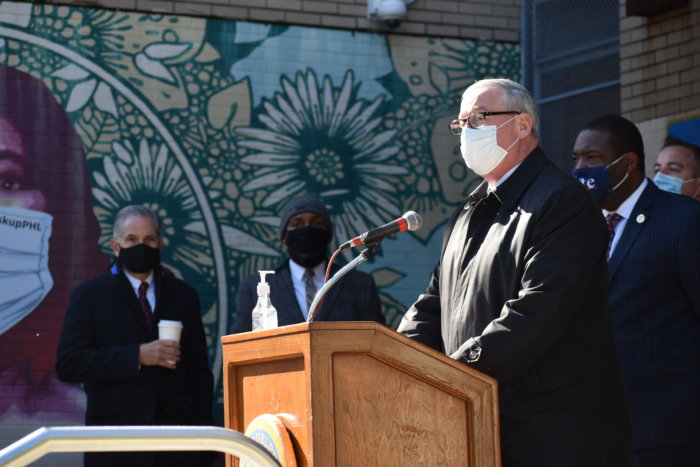
Perhaps the biggest concern is the restaurant industry, which has had to deal with a shifting array of rules over the past eight months.
Eateries can continue to offer outdoor dining, but it’s unclear how appealing that will become as the weather gets colder. Outside tables are limited to four chairs under the new restrictions, and Farley said restaurants should make sure people sitting together live in the same house.
Pennsylvania Restaurant and Lodging Association President John Longstreet said hospitality businesses need financial relief and that the industry is “in a literal and economic ‘do or die situation.’”
“It is no longer possible to pretend this will end soon, and restaurants and hotels cannot exist as we know it by sustaining the current landscape and its mammoth challenges,” he said in a statement responding to Monday’s announcement.
Officials said they understand the restrictions will have a negative impact on businesses and jobs. However, not tightening limits would lead to an explosion in cases and customers being afraid to leave their homes, Farley argued.
“If we do this right, our businesses will recover faster because the epidemic wave will subside sooner,” he said.
Philadelphia has registered 2,564 cases since Friday afternoon, including 654 on Monday. Eight people died of COVID-19-related illness over the weekend, raising the city’s toll to 1,917.
Last week, the city averaged 657 daily infections, an all-time high, and Farley said case counts are increasing by about 4% a day. The positive test rate stands at 13.4%.
“This is truly exponential growth,” he added.
The number of people with the virus at local hospitals has increased 600% in the last six weeks. In Philadelphia, 505 COVID-19 patients were hospitalized Monday, including 64 who were in the intensive care unit, according to a state dashboard.
Without a turnaround, projections indicate the city would exceed its hospital capacity; average 3,000 cases a day; and record between 700 and 1,400 deaths by Dec. 31, Farley said.
He said the virus seems to be spreading “a little bit everywhere,” and he urged residents to stay home whenever possible.
In addition to the business closures, indoor gatherings of any size, including weddings, baby showers and funerals, will be banned. Even get-togethers at private homes will be prohibited, though officials acknowledged the rule will be impossible to enforce.
Outdoor events will be limited to 10% of the venue’s capacity, with a maximum of 2,000, and food and drink will not be allowed under the new rules. Participants will be required to mask up at all times.
Retail stores can remain open and will be required to strictly enforce a limit of 5 people per 1,000 square feet, or 5% of their maximum capacity.
Churches and other religious institutions have been asked to conduct services remotely, but they are permitted to open at 5% capacity.
Barbershops and hair salons can continue operating, though masks cannot be removed at any point, officials said.
Guidance for grocery stores, pharmacies, banks and construction projects will not be affected, according to the city.
The restrictions were partially modeled on rules in Europe, where, Farley said, some countries have been able to control recent spikes in cases. He urged counties surrounding Philadelphia to enact similar plans.
New Jersey Gov. Phil Murphy signed an executive order Monday to limit indoor gatherings to 10 people starting Tuesday and outdoor events to 150 people beginning later this month.
Certain indoor events, including religious services, weddings, funerals and performances, will be allowed at 25% capacity, up to 150 people.



